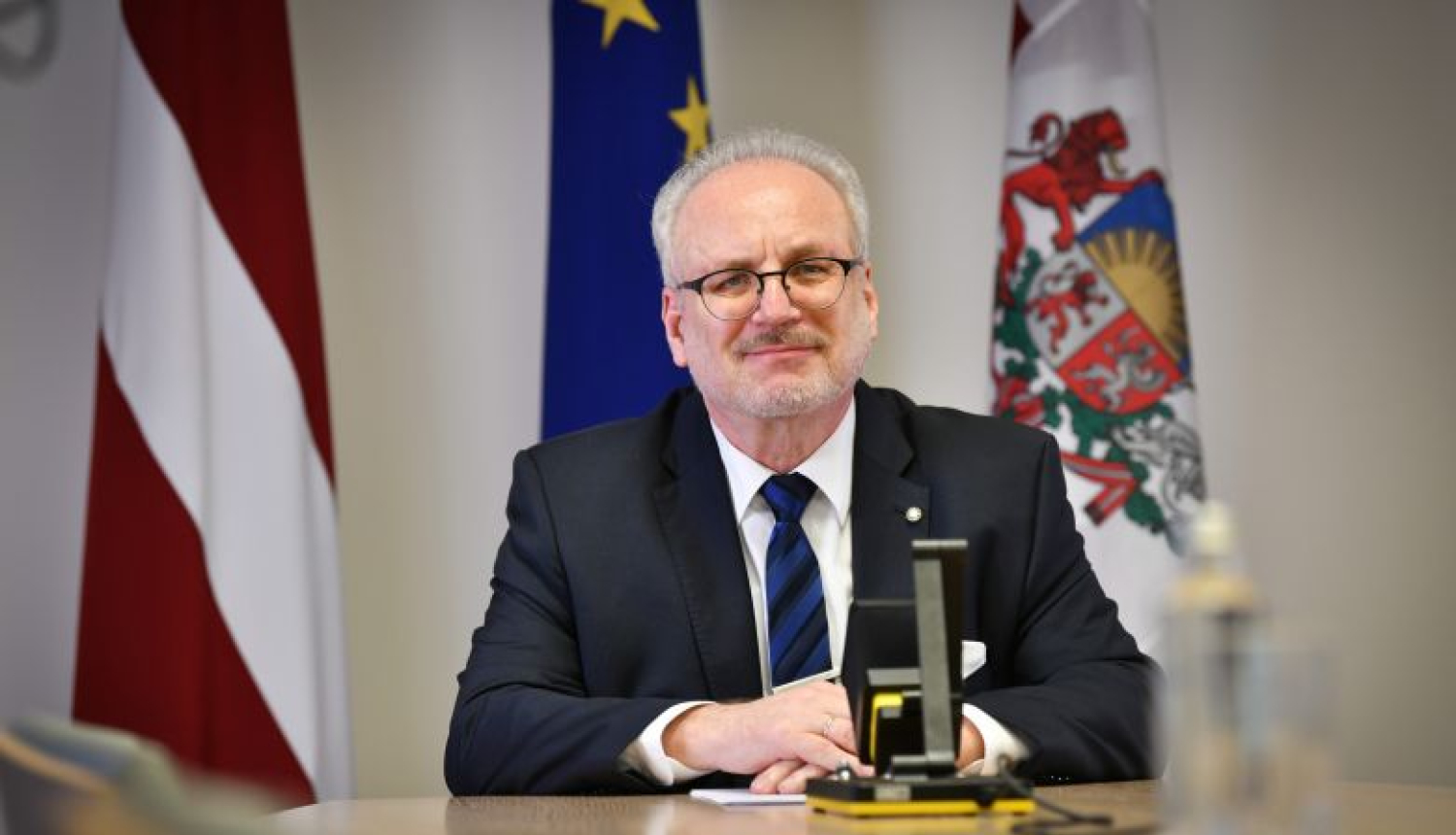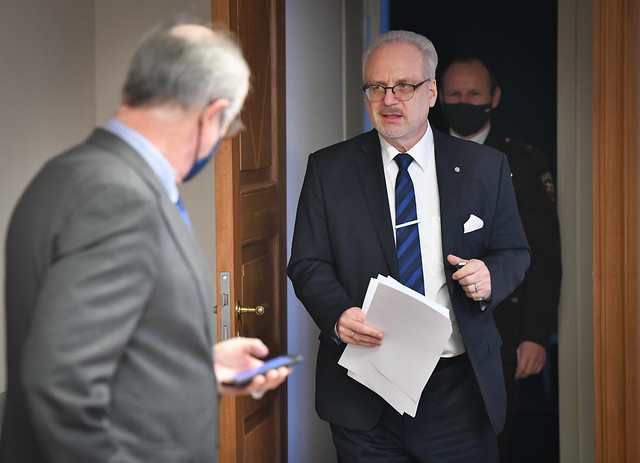Good afternoon dear participants of the conference,
Dear LIKTA and its members, organisers and participants,
I am deeply delighted and honoured to be invited to the opening of your annual conference. Thank you for your hard work, energy and growth!
Dear colleagues, viewers and listeners,
This is the time for new inventions. It is also time to put them to work.
21st century began with a technological revolution. There was euphoria all around for the past 20 years – more and more new discoveries piled in, limits were being pushed further away. And now we need to figure out how to keep this pace of innovation and lead the world towards new inventions. We must also put these and future inventions and discoveries to public use. One of the main challenges and questions in this context is how to bring these innovations to the people, to use them to change people’s everyday life. We should prevent emerging problems that we are already seeing today. I am talking about the so-called digital divide. Digital innovations should not be limited to part of population, while others would be limping behind. It is therefore one of the primary tasks of the society and policy-makers to prevent the digital divide from growing wider.
If we look at this year’s title of your conference, there is this keyword that describes a sports discipline where you constantly train your muscles to achieve better endurance and balance and be fit. Although it comes from sports terminology and describes a particular discipline, being fit in the context of our today’s conference is about Latvia training to get its digital muscles fit.
On one hand, COVID-19 crisis has shown how much our existence may depend on technologies and made us rethink the arsenal we have now. On the other hand, crisis also gave us a push to start imagining and thinking about future possibilities. Every country in Europe and the world is now busy with figuring out how to maximise the future benefits of innovations for the sake of mankind. It is absolutely crucial to make sure technologies serve us – we cannot become slave to technology. This is one of the main concerns that boggles the minds of the people. Not some abstract functionality, new gadget, but ‘How will I benefit from that?’ and ‘How will it make my life better compared to how it was before?’. Digital world and transformations must give a clear answer to everyone’s question ‘How will it make things better?’. That is also why huge investments into digital projects should be geared towards giving a clear answer to these questions.
European Union has allocated significant amount of funding for shaping Europe’s digital future. Latvia has access to around 300-400 million euro from European Recovery and resilience Facility and about 150 million euro from other European funds to implement national digital agenda. That is an impressive amount of money, and we need to put it to the best use possible. I hope and very much look forward to this conference giving us ideas about the most efficient use for this money. This is Latvia’s chance. This is our ICT sector’s chance. To be able to make well-informed decisions, we must first take stock of our current resources to be able to understand where we are. Then we will be able to determine goals for foreseeable future, which means that we need a comprehensive strategy and stock-taking is our first stop. We do not need institutions telling us all kinds of things and stories about everything that we already have. We must start with a real assessment of where we are. And I suppose many of today’s speakers will probably attempt to diagnose our current state.
We know that there is a shortage of IT experts, for instance. We know, for example, that half of our schools are not equipped with powerful internet connection. Dear friends, we consider ourselves a digital nation, although half our schools have weak broadband connectivity. It may sound harsh, but it is important to openly admit where we are at the moment. I believe in setting clear policy goals, and by policy I mean tech experts figuring out what is best for the public, what all of us want, instead of focusing on what is possible. That is the big question: what is it that we want? I see three main elements here.
First, digital skills. It is the duty of the government to make sure every Latvian can enjoy the benefits of digital progress this century has given us. We must work our way through various age and social groups and find tailor-made solutions that give every resident of Latvia a chance to keep up with the incredibly fast pace of digital progress. We should avoid the new kind of illiteracy. I am talking about the 19th century when there were people who knew how to read and write, and then there were those who could not. Naturally, those who knew how to read and write led a better life, while those who did not, or whose reading and writing skills were poor, were left behind. We are currently in a very similar situation. So, we need digital skills for all! That should be our mantra. Obviously, schools play a major part in this kind of training, educating future experts, offering lifelong learning or adult education to those who already work, and older population. Giving education to the people, of course, is a very important task.
Second, public administration and services. We already have our success stories: many of our public services are available digitally, so as a long line of services provided by local private companies. Not all of them are what we would call user-friendly, there are problems with compatibility, but these services do more or less work (which is not easy given the current uncertainty and challenges). As usual, there is always room for improvement, but we have built a solid foundation, nevertheless. We should not forget that there are still many services that are not available digitally. And then there is also the structuring. Not all of these services are client-driven, user-friendly or oriented. More often they serve the convenience of the government institution or agency. What should happen when we need to go digital with certain services or industries? I believe we should start from the other end, from a user’s perspective – that should be the dimension from which we build those digital services, the focus should always be on the client. Let us take customer service centres as an example. We should generally think about government services as one whole, a single public sector work. Client does not need to know which department, division, ministry or agency is responsible for that particular service. It is him and the public sector. That is as far as it should go. Big companies also have elaborate management structure, but when you reach out to them, they will respond collectively. It is like a shop full of services – you go in and get the service that you need. You do not want to know the nuts and bolts, that is not your concern. Service must be conveniently and easily accessible. That is not what we have right now. If we compare the way public services are provided right now, it is like walking around from one small shop to another to get all the pieces together, and no shop can tell you where exactly the other parts are sold. All of this should be integrated into a consolidated government system. Internal procedures should be designed with client’s needs and comfort in mind. That is why we absolutely need to create a consolidated service architecture. That is a difficult task, but at least everyone is aware of it. That is why we have you, the experts, who can help us sort out these needs and build necessary infrastructure. Single architecture bringing all public digital services together is a challenge I encourage you to address very seriously.
As we design (that is the word I will use) these services, we must also think about the human rights, freedoms and privacy in the digital realm. If we ask people to move to a digital platform as the only medium, we need to take care of how it works. By ‘we’ I mean the government. Government needs to take care of human rights before anyone is asked to move into this digital domain, ensuring full respect. All freedoms and protection should also be provided. If something goes ‘belly up’, it is our fault. We will need to indemnify for damages because that was the only option people had. You can, of course, do without digital services if you live in a forest, but otherwise that is not even an option. When everyone becomes a part of the digital system, government will be fully responsible for how digital architecture operates from a political, legal and judicial perspective. As a lawyer, I am compelled to conclude that this dimension is often missing in our conversations.
There is also the other side – technology addiction. We must do our best to make sure people are addiction, i.e. there should be an option to access these services in person.
Last, as far as digital services are concerned, we have to have clear technical, security and accountability standards. New technologies are released constantly. They will presumably become more convenient and accessible; their build will become more and more intricate. Added complexity leads to greater margin for error. This margin of error should be automatically fed into, should be included in all scenarios, together with mechanisms correcting the error. Like in real life. If you go to a government institution and official makes a mistake, you can appeal the decision in all three instances – most mistakes are corrected that way. In digital realm people should have the same right to appeal and get the mistake mended. Just like in real life. Maybe there is no mistake at all. Somebody needs to check it. Anyway, remedies should also be an issue that needs to be discussed.
In conclusion, I would like to remind you, dear colleagues, that this crisis will be over. It is not over yet, but I believe that once vaccines are available for mass immunisation we will come out of the crisis towards the end of the next year. We have gotten this far because our technological basis is quite solid. Although there are many restrictions in our lives right now, technologies keep moving us forward. Take, for example, today’s meeting. Technologies allow us to meet remotely when we cannot meet in person. We have to appreciate the collective and individual benefits of the technological progress, which we are already taking for granted. We have a good foundation, but it is far from perfect. New elements need to be added constantly to expand it. That is exactly what you are going to discuss here today. So, I wish everyone a productive, interesting and, hopefully, controversial discussion and many useful take-aways!
Thank you for everything you have done so far! You have come a long way, and your work has made our society richer. We are naturally looking at you for renewed enthusiasm and innovations that help the whole society of Latvia and our state move up in global competition. We are doing better than average in terms of competitiveness, but we need to do better. So, best of luck to all of you. We are looking forward to publications and articles detailing discussions that took place here at this conference and proposing meaningful future scenarios.
Thank you and have an exciting day!





